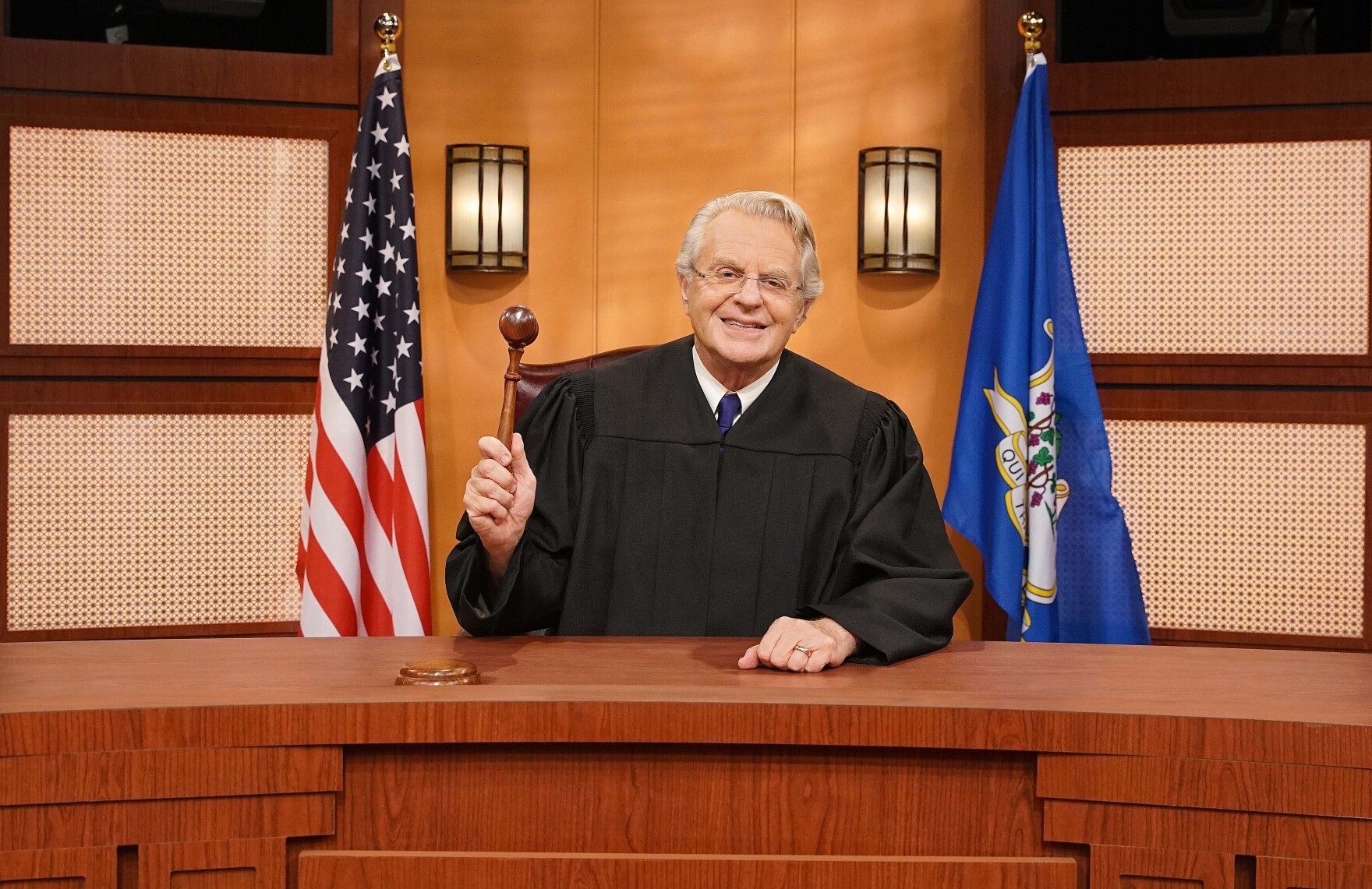When it comes to dealing with wills and probate matters, it is important to seek the assistance of a lawyer who specializes in this area of law. These specialized lawyers have the knowledge and expertise to guide individuals through the complexities of estate planning, ensuring that their wishes are properly documented and executed.
One type of lawyer specializing in wills and probate is an estate planning attorney. These attorneys focus on helping individuals create and update their wills, as well as developing comprehensive estate plans that protect their assets and provide for their loved ones after their passing. Estate planning attorneys are knowledgeable in tax laws and can provide guidance on minimizing estate taxes and ensuring that the maximum amount of assets are passed on to beneficiaries.
Another type of lawyer specializing in wills and probate is a probate attorney. Probate attorneys assist in the legal process of administering a deceased person’s estate. They guide the executor or personal representative through the probate process, which involves validating the will, inventorying assets, paying outstanding debts and taxes, and distributing the remaining assets to the beneficiaries. Probate attorneys can also help resolve any disputes or challenges to the will that may arise.
In addition to estate planning attorneys and probate attorneys, there are also lawyers who specialize in elder law. These lawyers focus on legal issues that affect older individuals, such as wills, trusts, guardianship, and long-term care planning. They can provide guidance on how to protect assets, qualify for government benefits, and ensure that individuals receive the appropriate care and support as they age.
Overall, having the guidance and expertise of a lawyer who specializes in wills and probate is essential to ensure that your wishes are carried out and your assets are protected. Whether you are creating a will, administering an estate, or planning for your future, these specialized lawyers can provide the necessary legal advice and support to navigate the intricate processes involved.
Estate Planning Lawyer
An estate planning lawyer specializes in helping individuals plan and manage their estates, ensuring that their assets are distributed according to their wishes.
These lawyers assist clients in creating wills, trusts, and other estate planning documents. They provide guidance and advice on how to minimize tax liabilities, protect assets from creditors, and establish plans for incapacity or disability.
An estate planning lawyer is knowledgeable about the laws and regulations surrounding inheritance, taxation, and property rights. They stay up-to-date with changes in the law to ensure that their clients’ estate plans are always valid and compliant.
These lawyers also play a crucial role in the probate process. They can help executors or administrators navigate the legal requirements for settling an estate, including filing necessary documents and resolving any disputes that may arise.
Additionally, an estate planning lawyer may facilitate discussions between family members to address any potential conflicts or disagreements regarding the distribution of assets. They can offer mediation services to help reach a fair and amicable resolution.
Overall, an estate planning lawyer provides essential guidance and support to individuals and families in preparing for the future and ensuring their wishes are carried out after their passing.
Probate Lawyer
A probate lawyer is a legal professional who specializes in the area of probate law. Probate is the legal process that takes place after someone passes away and involves the distribution of their assets and the settlement of their debts. A probate lawyer is responsible for guiding clients through this process and ensuring that everything is handled in accordance with the law.
Roles and Responsibilities
Probate lawyers have a range of roles and responsibilities when it comes to handling the probate process. Some of their main duties include:
- Representing the Executor or Administrator: The probate lawyer often represents the executor or administrator of the estate, who is responsible for carrying out the deceased person’s wishes as outlined in their will. The lawyer provides legal advice and guidance throughout the probate process.
- Preparing and Filing Documents: A probate lawyer helps prepare and file all the necessary legal documents required for the probate process. This includes filing the will with the court and various other documents related to the administration of the estate.
- Managing Estate Assets: The probate lawyer may assist in managing the assets of the estate, such as selling property or liquidating investments, to help pay off any outstanding debts and distribute assets to beneficiaries.
- Dealing with Disputes: In some cases, there may be disputes among beneficiaries or creditors regarding the distribution of assets or the validity of the will. The probate lawyer helps resolve these disputes through negotiation, mediation, or, if necessary, litigation.
- Ensuring Legal Compliance: A probate lawyer ensures that all actions taken during the probate process are in compliance with applicable laws and regulations. They make sure that creditors are notified, taxes are paid, and all necessary legal requirements are met.
Why Hire a Probate Lawyer?
Hiring a probate lawyer when dealing with the probate process can provide several benefits. Some of the reasons to hire a probate lawyer include:
- Expertise and Knowledge: Probate laws can be complex and vary from state to state. A probate lawyer has the expertise and knowledge to navigate these laws and ensure that the probate process is carried out correctly.
- Peace of Mind: Dealing with the probate process can be emotionally challenging, especially after the loss of a loved one. Hiring a probate lawyer allows you to focus on grieving and healing while knowing that all legal matters are being taken care of.
- Efficiency: A probate lawyer can streamline the probate process, ensuring that it is completed as quickly and efficiently as possible. They can help avoid unnecessary delays and complications.
- Protection against Legal Issues: By working with a probate lawyer, you can ensure that all legal requirements are met, reducing the risk of potential legal issues or disputes arising in the future.
Overall, a probate lawyer plays a crucial role in ensuring that the wishes of the deceased are carried out, debts are settled, and assets are distributed properly. They provide valuable guidance and support throughout the probate process, helping to ease the burden on the executor or administrator and ensure a smooth transition.
Trusts and Estates Lawyer
A trusts and estates lawyer specializes in helping individuals and families plan for the management and distribution of their assets after they pass away. They have a deep understanding of estate planning laws and work closely with clients to create legally binding documents such as wills, trusts, and powers of attorney.
One of the main functions of a trusts and estates lawyer is to guide clients through the probate process. This involves proving the validity of a will, identifying and inventorying the deceased person’s assets, paying any outstanding debts or taxes, and distributing the remaining assets to the beneficiaries according to the deceased person’s wishes.
Trusts and estate lawyers may also assist clients in setting up trusts, which are legal arrangements that allow a third party (the trustee) to manage and distribute assets on behalf of the beneficiaries. Trusts can be useful for individuals who want to control how their assets are distributed, protect their assets from creditors, or provide for the long-term care of a disabled family member.
In addition to helping clients create and manage trusts and estates, trusts and estates lawyers may also handle legal issues related to estate administration, will contests, estate taxes, and charitable giving. They work closely with clients to ensure their wishes are carried out and their assets are protected for future generations.
If you need assistance with estate planning, probate, or other legal matters related to your assets and inheritance, consulting with a trusts and estates lawyer can provide the expertise and guidance you need to navigate the complex legal landscape.
Elder Law Attorney
An elder law attorney specializes in legal matters that specifically affect senior citizens. These attorneys are well-versed in the unique legal, financial, and social issues that older adults may encounter. They provide guidance and representation to their clients in a variety of areas, including estate planning, guardianship, Medicaid planning, and long-term care planning.
One of the primary roles of an elder law attorney is to help seniors and their families create comprehensive estate plans. They assist in drafting wills, trusts, and power of attorney documents to ensure that a person’s assets are protected and distributed according to their wishes. In addition, they can provide advice on minimizing estate taxes and transferring property to beneficiaries efficiently.
Elder law attorneys can also help seniors plan for their long-term care needs. They can explain the options available, such as nursing home care, assisted living, or in-home care, and assist in developing a plan that aligns with a person’s preferences and financial situation. They can also provide guidance on how to qualify for Medicaid and help navigate the complex process of applying for government assistance programs.
In cases where a senior becomes incapacitated and is unable to make decisions on their own, an elder law attorney can help establish guardianship. They can guide families through the legal proceedings and ensure that the court-appointed guardian is acting in the best interest of the incapacitated individual.
Overall, an elder law attorney plays a vital role in protecting the rights and interests of senior citizens. They provide invaluable advice and support to older adults and their families, helping them navigate the complexities of legal matters that often arise with age. If you or a loved one are in need of legal assistance related to issues affecting seniors, consulting with an elder law attorney can provide peace of mind and ensure that your interests are properly represented.
Tax Lawyer
A tax lawyer specializes in helping individuals and businesses navigate the complex world of taxation. They are well-versed in tax laws and regulations and can help clients understand their tax obligations and rights. Tax lawyers can assist with tax planning, tax audits, and resolving tax disputes with the government.
Some of the specific services provided by tax lawyers include:
- Advising clients on tax implications of business transactions
- Preparing and filing tax returns
- Representing clients in negotiations with tax authorities
- Assisting with tax disputes and litigation
- Providing guidance on tax-saving strategies
- Helping clients comply with tax laws and regulations
A tax lawyer may also specialize in certain areas of taxation, such as corporate tax, international tax, or estate tax. They stay up to date on changes in tax laws and regulations to provide the most accurate and effective advice to their clients.
Working with a tax lawyer can help individuals and businesses ensure compliance with tax laws, minimize tax liability, and resolve tax issues efficiently. They can also provide valuable guidance on tax planning strategies to help clients make informed financial decisions.
Family Lawyer
A family lawyer is a type of lawyer who specializes in legal matters related to family law. They handle cases involving divorce, child custody, child support, adoption, and other issues that arise within a family unit.
Family lawyers are well-versed in the complex and emotional nature of family law cases. They provide legal advice, negotiate settlements, and represent their clients in court. Their main goal is to help their clients navigate the legal system and protect their rights and interests.
Family lawyers can assist clients in various ways, including:
- Providing legal advice and guidance on issues related to marriage, divorce, and child custody.
- Negotiating and drafting prenuptial agreements, separation agreements, and other legal documents.
- Representing clients in court proceedings, such as divorce hearings and child custody disputes.
- Assisting with the adoption process and handling legal matters related to child custody and support.
- Working with other professionals, such as mediators and therapists, to resolve family disputes.
Family lawyers understand the sensitive nature of family law cases and are committed to protecting their clients’ interests and well-being. They provide support and guidance to their clients throughout the legal process, helping them make informed decisions and find resolution in their family matters.
Litigation Lawyer
A litigation lawyer is a type of attorney who specializes in handling legal disputes and lawsuits. They play a crucial role in the probate and estate planning process by representing clients in court and advocating for their rights and interests. Litigation lawyers are highly experienced in navigating the complex legal system and are skilled in presenting compelling arguments in front of judges and juries.
When it comes to wills and probate, litigation lawyers may handle cases involving contested wills, disputes over the administration of estates, and accusations of fraud or undue influence. They work closely with their clients to gather evidence, research legal precedents, and build a strong case strategy.
In addition to representing their clients in court, litigation lawyers can also assist with alternative dispute resolution methods, such as mediation or arbitration. These methods aim to resolve legal conflicts outside of the courtroom, saving time, money, and emotional stress for all parties involved.
It is essential to hire a skilled litigation lawyer specializing in wills and probate if you find yourself facing a legal dispute related to estate planning. They will ensure that your rights are protected, and they have the expertise to navigate the complexities of the legal system to achieve a favorable outcome for you.
Financial Planner
A financial planner is a professional who helps individuals and families manage their finances and plan for their future. They provide expert advice on various financial matters, including retirement planning, investment strategies, tax planning, and estate planning.
Financial planners play an essential role in helping clients create a comprehensive financial plan that aligns with their goals and aspirations. They assess a client’s current financial situation, analyze their income, expenses, assets, and liabilities, and develop a customized plan tailored to their specific needs.
Retirement Planning: Financial planners help clients determine how much money they will need for retirement and develop strategies to achieve their goals. They analyze factors such as income sources, expenses, and retirement age and recommend suitable investment options, such as pension plans, individual retirement accounts (IRAs), or annuities, to ensure a comfortable retirement.
Investment Strategies: Financial planners assist clients in creating investment portfolios that align with their risk tolerance, financial goals, and time horizon. They provide guidance on asset allocation, diversification, and selecting appropriate investment vehicles, such as stocks, bonds, mutual funds, or real estate, to help clients maximize their returns and mitigate risks.
Tax Planning: Financial planners help clients minimize their tax burden by assessing their financial situation and identifying potential tax deductions, credits, and strategies. They provide advice on tax-efficient investment strategies and recommend ways to maximize tax benefits through retirement plans, education savings accounts, charitable donations, and other tax-saving strategies.
Estate Planning: Financial planners assist clients in developing an estate plan to ensure their assets are distributed according to their wishes after their demise. They help clients navigate complex legal and tax aspects of estate planning and work with estate planning attorneys to draft crucial documents such as wills, trusts, power of attorney, and healthcare directives.
Emotional Support: In addition to their financial expertise, financial planners also provide emotional support and guidance to their clients. They understand that financial decisions can be stressful and overwhelming, and they offer reassurance and a listening ear to help clients feel more confident and in control of their financial future.
In conclusion, financial planners provide valuable assistance to individuals and families by offering expert advice and guidance on various financial matters. Whether it’s retirement planning, investment strategies, tax planning, or estate planning, a financial planner can help individuals make informed decisions and secure their financial future.
Q&A: What type of lawyer does wills
When do you need a lawyer for wills and trusts?
You need a lawyer for wills and trusts when you’re considering advanced estate planning, need to establish financial powers of attorney, or require guidance on beneficiary designations to ensure your assets are managed and distributed according to your wishes upon your death.
What type of attorney handles wills, trusts, and probate court matters?
An estate planning attorney can help with wills, trusts, and navigating probate court processes, ensuring that your estate planning needs are met in a legally sound manner.
Why might someone need a probate lawyer specifically?
Someone might need a probate lawyer if they are managing the estate of a deceased person, especially if the estate is large, involves complex assets, or if there are disputes among beneficiaries that require resolution in probate court.
What should you consider when choosing a lawyer for making a will?
When choosing a lawyer to make a will, consider their expertise in estate planning, experience with similar estates, membership in the American College of Trust and Estate Counsel if applicable, and their ability to meet your specific estate planning needs.
How can working with a wills and trusts attorney benefit families with minor children?
Working with a wills and trusts attorney benefits families with minor children by ensuring guardianship and financial provisions are clearly outlined in estate documents, protecting the children’s well-being and financial future in case anything happens to the parents.
Are holographic (handwritten) wills legally valid, and what are the requirements?
Holographic wills can be legally valid in many states if they meet specific requirements, such as being entirely in the testator’s handwriting, signed by the testator, and in some states, witnessed by two witnesses. However, their validity can vary by state, and they are often more susceptible to challenges in probate court.
How do estate planning attorneys charge for their services?
Estate planning attorneys may charge a flat fee for more straightforward services like drafting simple wills or trust documents, but for more complex estate planning or probate cases, they might charge an hourly rate. The fee structure often depends on the complexity of the estate and the specific services required.
What is a self-proving will, and why is it important?
A self-proving will includes a notarized affidavit from the testator and witnesses, confirming the authenticity of the will and making the probate process smoother and quicker, as courts can accept the will without contacting the witnesses.
How can an estate planning attorney help business owners and individuals with blended families?
An estate planning attorney can help business owners and individuals with blended families by addressing specific concerns such as business succession, protecting assets for children from previous relationships, and ensuring that the distribution of the estate is carried out in the way you want, considering the unique dynamics of blended families.
What should you ask an attorney when discussing setting up a trust?
When discussing setting up a trust with an attorney, you want to ask about the type of trust that best fits your estate planning goals, the process for funding the trust, how to select trustees, the implications for taxes and asset protection, and how the trust works in conjunction with your will and other estate planning documents.
Why is it important to consult an expert attorney to discuss putting a trust in place for a large estate?
Consulting an expert attorney to discuss putting a trust in place for a large estate is crucial to ensure that the estate is managed and distributed according to your wishes upon your death, while also potentially minimizing estate taxes and avoiding probate.
Can online estate planning services be a viable option for someone with a straightforward financial situation?
Online estate planning services can be a viable option for individuals with straightforward financial situations, as they can provide a cost-effective and convenient way to create basic estate planning documents that meet legal requirements, but it’s essential to ensure they are state-specific.
How do the fees of many lawyers who specialize in wills and trusts compare to the complexity of one’s estate planning needs?
The fees of many lawyers specializing in wills and trusts typically reflect the complexity of an individual’s estate planning needs; more complex estates may require a higher fee, often charged at a flat rate or hourly rate, to adequately address all legal and financial considerations.
What are the benefits of having the right lawyer help you draft a will and other estate planning documents?
Having the right lawyer help you draft a will and other estate planning documents ensures that your estate plan is comprehensive, legally sound, and tailored to your specific needs, helping to protect your family and assets upon your death.
Why is it essential for individuals to have a will in place, especially if they have minor children or significant assets?
Having a will in place is essential for individuals, especially those with minor children or significant assets, to make sure that everything is taken care of according to their wishes, from guardianship decisions to the distribution of their estate, ensuring their family is protected in case anything happens.
How does the process of creating an attorney-client relationship benefit individuals engaging in end-of-life planning?
Creating an attorney-client relationship benefits individuals engaging in end-of-life planning by providing personalized legal advice, confidentiality, and the assurance that their estate planning documents are drafted accurately and effectively represent their wishes.
In what ways do state laws impact the validity of wills and trusts created through do-it-yourself online platforms?
State laws significantly impact the validity of wills and trusts created through do-it-yourself online platforms, as each state has specific requirements regarding the execution and witnessing of these documents, making it crucial for individuals to ensure their online estate planning meets these state-specific legal requirements.
What considerations should be taken into account when deciding whether to consult an attorney or use a do-it-yourself approach for estate planning in 2024?
When deciding whether to consult an attorney or use a do-it-yourself approach for estate planning in 2024, individuals should consider the complexity of their estate, the need for state-specific legal compliance, the potential for future legal disputes, and the value of professional advice in ensuring their estate plan is executed as intended.
How do attorneys typically charge for estate planning services, and what does this mean for individuals with varying financial assets?
Attorneys typically charge for estate planning services either by a flat rate for standard documents or an hourly rate for more complex estate planning needs, which means individuals with varying financial assets can choose the service level that matches their estate’s complexity and their budget.
What factors determine the need for a wills attorney, and how do many attorneys help ensure assets are distributed as intended?
The need for a wills attorney depends on several factors, including the size of the estate, the complexity of the financial assets, and any specific family dynamics. Many attorneys help ensure assets are distributed as intended by drafting detailed documents that clearly articulate the testator’s wishes and meet all legal requirements, thereby creating a legally sound plan for asset distribution upon their death.







